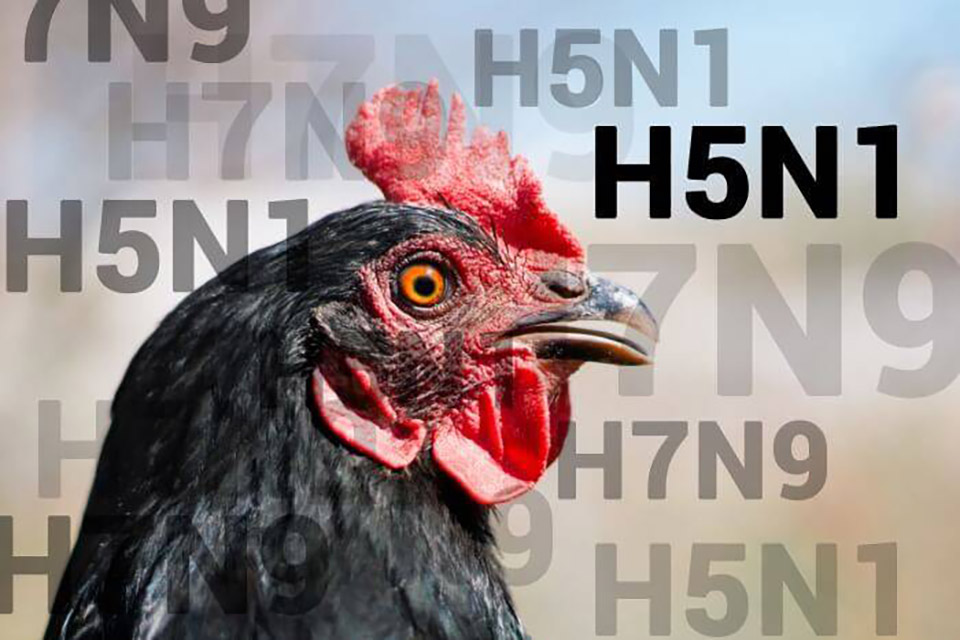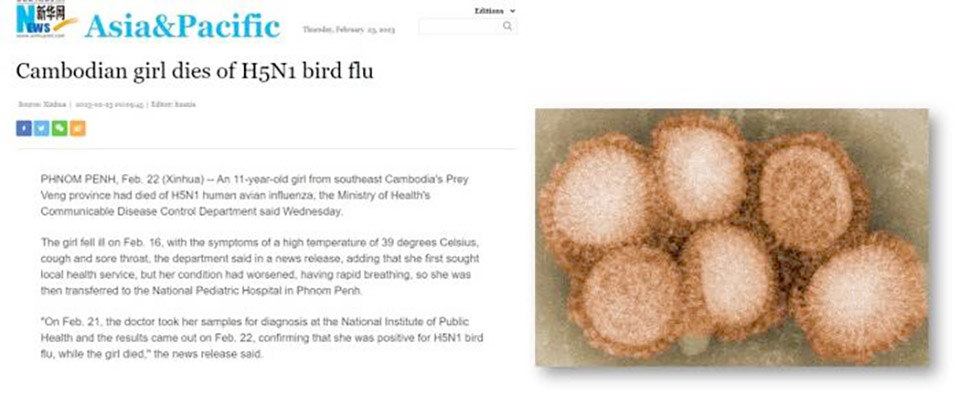
An 11-year-old girl has died of bird flu in eastern Cambodia, prompting a call for increased disease monitoring by government health agencies.
In response to the incident, Dr. Anan Jongkaewwattana, a virologist at the National Center for Genetic Engineering and Biotechnology, urged the government, through a Facebook post, to increase its monitoring of the H5N1 virus, commonly known as bird flu.
According to the Cambodian Ministry of Health’s Communicable Disease Control Department, the girl, who lived in a village in Prey Veng province bordering Vietnam, developed feverish symptoms on February 16.
A report stated that the patient had a cough and sore throat, and her temperature reached 39 degrees Celsius. She was transferred to the National Pediatric Hospital in Phnom Penh from a provincial hospital, where she was diagnosed with an H5N1 infection. Her condition rapidly deteriorated, and she eventually succumbed to the illness on February 22.

To prevent the spread of such viruses, Dr. Anan said it is crucial for the country to increase monitoring efforts and maintain a high level of vigilance. This could include intensifying surveillance at entry points such as airports and border crossings, monitoring livestock and poultry farms, and conducting regular health checks on people who work closely with animals.
Additionally, the virologist suggested that educating the public on the risks of bird flu transmission and promoting good hygiene practices could help to reduce the likelihood of these viruses spreading. (NNT)






